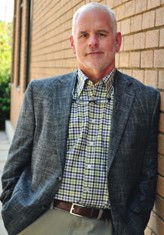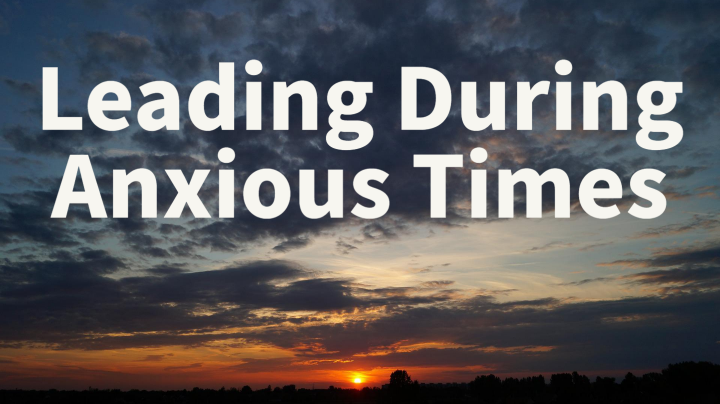When communities experience heightened anxiety, effective leaders are especially important.
Join us for an in-person Day of Learning as we learn from Craig Gilliam (JustPeace) about how leaders can calm the storm, create space for vision, and lead congregations to a place of hope and expectation.
Participants will:
- Understand what chronic anxiety is and identify indicators of high anxiety in your congregational or personal life system.
- Identify emerging qualities and practices for effective leaders and leadership excellence, especially in times of high anxiety, change, difficult conversations, and discernment.
- Distinguish practices as leaders to help calm the system, quieten the noise, and slow things down (if needed), so people can think, hear, feel, pray, and respond at their best.
- Identify possible steps to help create open, safe space for listening and learning to maximize insights and wisdom and minimize the harm people can do to each other through reactive, destructive behaviors and conversations.
Leading During Anxious Times
October 20, 9:30am – 3pm (*doors open at 9am)
St. Andrews UMC, Raleigh (Map it)
$50/person, includes lunch
(20% discount for registering 3 or more)
Don’t delay! The deadline to register is October 15. Groups receiving the discount must register by October 10.
About the Day:
I believe that God, whose middle name is Surprise, shows up in the most unusual places, spaces, and faces, and is still at work in the midst of it all, including in anxiety and chaos.
High anxiety and reactivity are recurring themes in our congregations and the ecclesiastical system. When individuals and communities are highly anxious, they are not at their best. Congregations holding sustained high anxiety trend toward negativity, mistrust, reactivity, and a loss of purpose, resulting in ineffectiveness, disengagement, unhealthy conflict, and burn-out. The joy of ministry gets lost, as does motivation, engagement, and excellence. Also, high anxiety over time can take its toll on the leaders’ and community’s health, well-being, and soul.With the struggles going on in the church and systems in which it is nested, such as politics, a pandemic, social justice issues, and other complex influences, it is no surprise that anxiety is soaring. But to navigate a congregation through the winds of this time takes self-awareness on the part of leaders. Research shows that leadership excellence and self-awareness walk together and include ways of being (I-Thou) and doing. Both for lay and clergy, leadership is a skill to develop and art to cultivate. The artistry and impact are greatest for those who identify, embody, and work from their unique talents and strengths.
About W. Craig Gilliam:
Achiever | Learner | Adaptability | Maximizer | Relator

Dr. W. Craig Gilliam is the founder and owner of Gilliam & Associates, LLC and resides in Shreveport, LA. He is a member of the Louisiana Conference, UMC (elder). While he is part of the UMC, his work in religious congregations and other religious organizations have been with various faith traditions. Professionally, he works in the field of I/O psychology, is an organizational consultant and coach, Gallup-Certified Strengths Coach, Certified in Barrett’s Cultural Values Assessment and Master trainer and coach on The Predictive Index. Moreover, he is a facilitator, educator and works in areas of leadership development, change management, conflict transformation (both training and interventions), employee/membership engagement and motivation, and assists religious organizations, congregations, and businesses in creating strengths-based, engaged cultures for higher performance and improved outcomes.
With over 25+ years of experience in leadership coaching, conflict transformation, and organizational consulting, he has served in various capacities. Some include faculty at a counseling and training center in New Orleans; adjunct instructor at SMU; director of a center for pastoral/leadership excellence for the LA Conference, UMC; on staff as a consultant for a mediation and conflict transformation center in Washington, D.C., (JustPeace), and as a senior consultant and conflict resolution specialist for an organization in Utah. Craig’s dissertation was on leadership and the effects of anxiety and conflict in organizational and congregational life.

